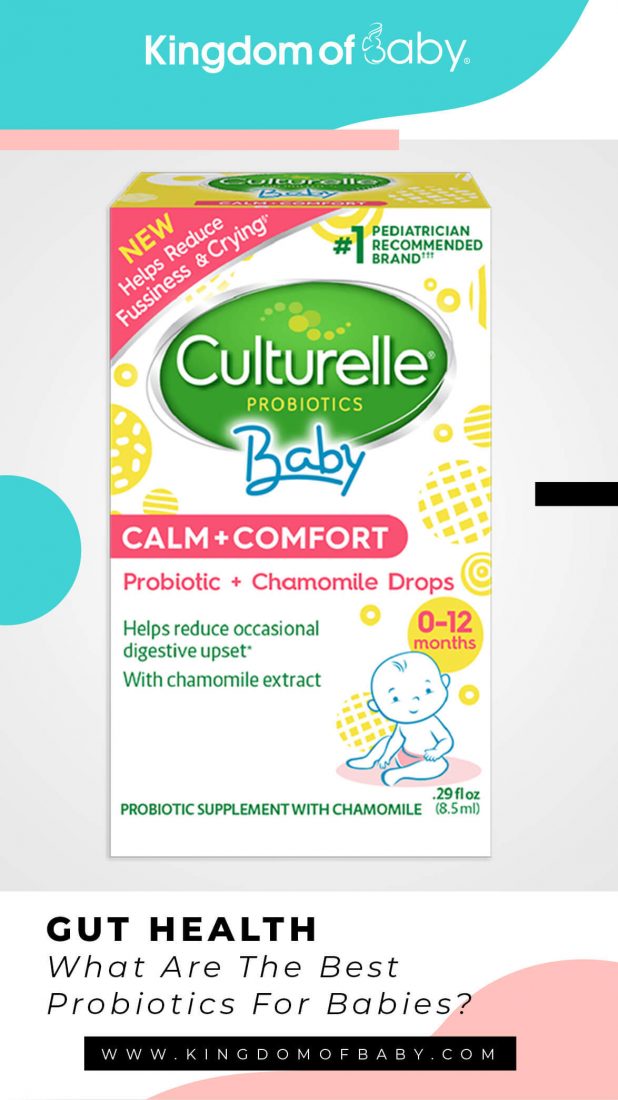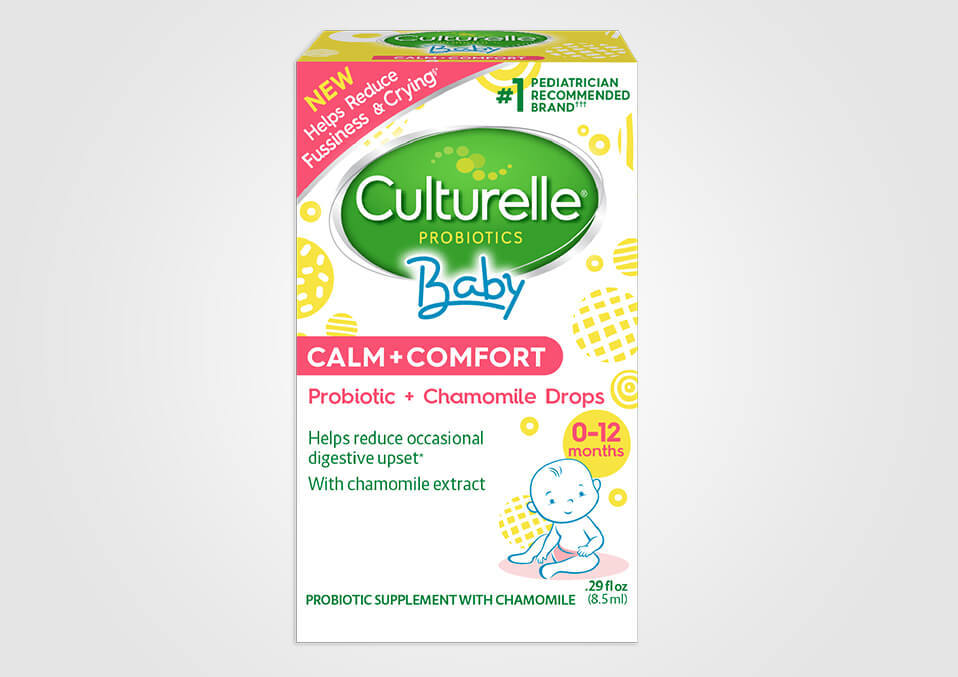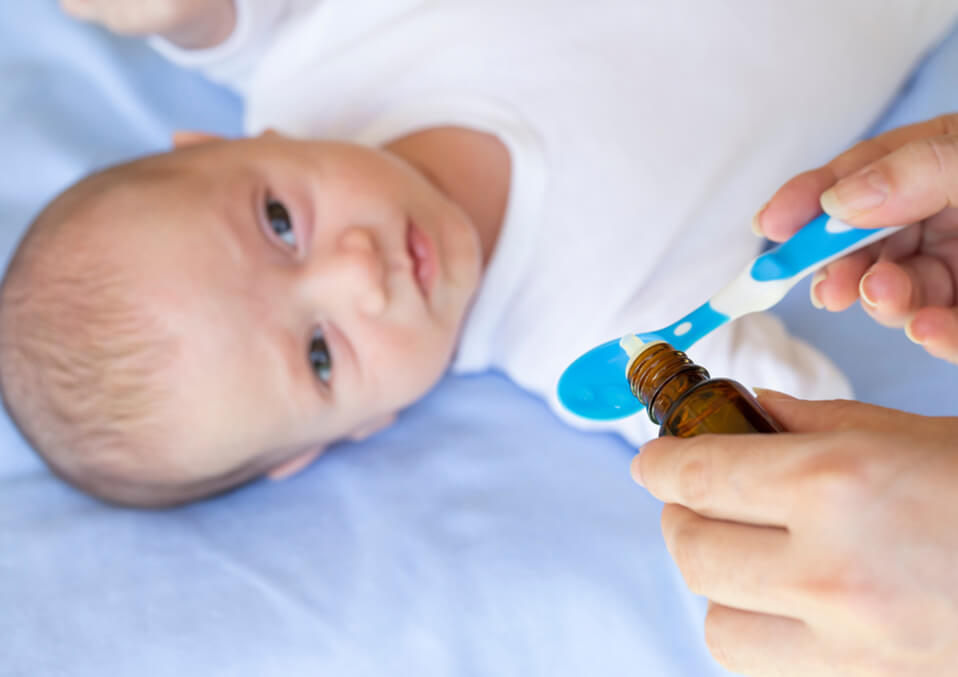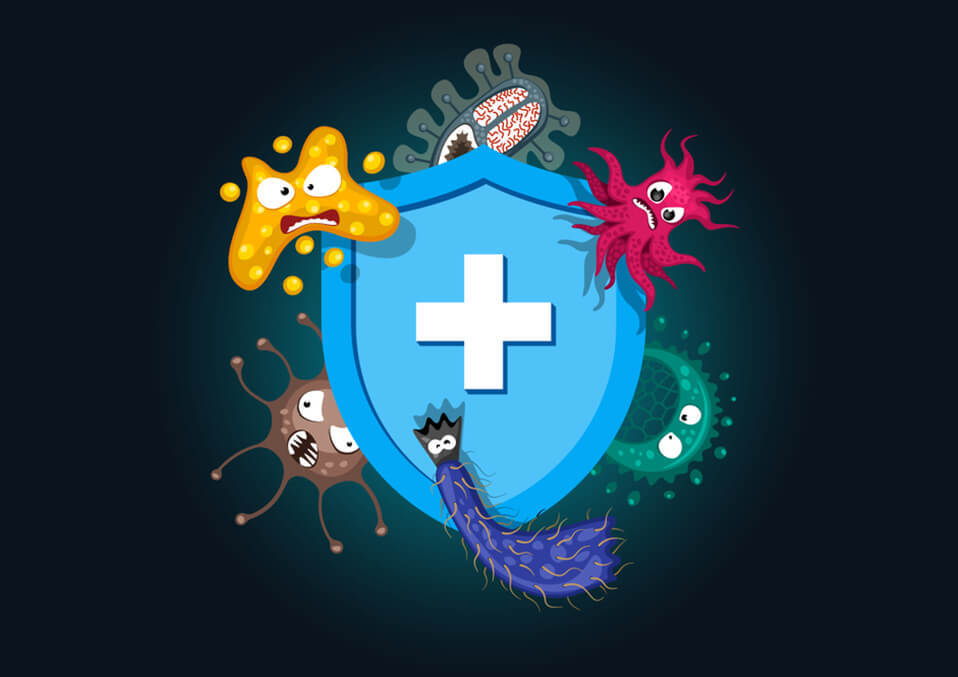
For the past decades, studies have shown that our gut health has a direct effect on our immune system, mental health, and overall functioning. Establishing your baby’s gut health is important especially in their first years of life. Since they are born with little bacteria, we can help them develop a healthy gut with the help of probiotics.
Babies with healthy gut experience less colic, eczema or constipation. They are able to fight infections and other diseases better since good bacteria also affect the liver, brain and other vital organs in the body.
Since establishing a healthy gut contributes to better health for the baby, incorporating probiotics in their diet will set a good foundation for their physical and mental health over the years.
Understanding probiotics

Unaware to many, our body is filled with microbes, both good and bad. It is estimated that an average human body has 100 trillion microbes that have a significant effect on our health.
Probiotics are the good bacteria living in our bodies. It consists of different strains of live microbes that work to maintain the delicate balance in our intestines. It is considered as one of the effective natural remedies for kids.
For babies, their first exposure to bacteria in the amniotic fluid. The type of bacteria they will be exposed to will depend on the gut and oral microbes of the mother. Unfortunately, because of exposure to GMOs, antibiotics, sugary diet and processed food, mothers can pass these microbes poorly.
As they thrive in the world, they will be exposed to diverse microorganisms and this will depend on their environment. Breastmilk, food, and exposure to pets and other elements are just a few examples.
Providing them with probiotics will give their gastrointestinal system a boost. Some well-known strains are Lactobacillus and Bifidobacteria which can be found in various food products like yogurt, pickles, sauerkraut. Kimchi and kefir. You can also find it as a supplement in many stores.
Is probiotics safe for babies?

Many studies conducted have indicated the safety of probiotics for babies. You can see how it is incorporated in many infant formulas, food products.
Since baby probiotics are considered as a supplement with no recommended dosage and come in different strains, it is important to consult your pediatrician regarding its use.
Benefits of probiotics for babies

Improve digestive system
When there is no balance in the digestive system, it will be hard to digest and absorb nutrients from food which is essential in keeping the body healthy. It will also cause colic, constipation, acid reflux and even diarrhea for babies.
Based on a study published in the American Academy of Pediatrics, probiotics specifically Lactobacillus reuteri has a significant result when used as a treatment for colic. The babies who took probiotics cried less compared to the placebo group.
Improve immune system
Probiotics help improve gut flora particularly if the baby is taking medication such as antibiotics. It will also allow the body to fight illnesses better and avoid longer sick days.
As described in the website Motherly, a research done in New Zealand showed babies who were given yogurt as part of their daily diet showed lower allergy and eczema risk up to 70%. It also reduces the number of respiratory tract infections among children.
Better mood
Serotonin and dopamine, the brain neurotransmitter, also known as the “feel-good” hormones are made significantly from our gastrointestinal system. There are certain types of probiotics that can reduce anxiety or depression by improving dopamine and serotonin output. It also reduces cortisol, a stress hormone in the body.
What are the best probiotics for babies
Not all probiotics are the same and parents need to supplement with the advice of a pediatrician. Since every baby reacts differently to different strains, you might have to try a few food products before determining which one is the best probiotics for your babies. Nowadays, you can either choose fermented food products or supplements.
Breastmilk
This “liquid gold” is rich in live bacteria. It is estimated to contain as many as 600 strains of bacteria like Bifidobacterium breve, B.longum, B.dentium, and B.adolescentis. These bacteria come from the mother’s digestive system. These strains also inhibit the growth of any possible infections, especially in young infants.
Yogurt
This fermented milk is one of the easiest sources of healthy live microbes. You can even make feeding interesting with different yogurt recipes for babies. However, it is important to check for live cultures. Some yogurts do not have active bacteria because as it died during the processing.
Cheese
If your baby is eating solids, you may want to introduce cheese into their diet. Mozzarella, Gouda, cheddar, and cottage are a few examples of cheese with live microbes. It also contains other nutrients such as protein, calcium, phosphorus, selenium and vitamin B12. Always check the food label since there is some cheese though fermented does not contain probiotics.
Gutpro infant probiotic powder
This product is designed specifically for babies and it doesn’t come cheap. It consists mainly of Bifidobacterium infantis which is a vital strain for babies. It does not contain any preservatives or artificial flavors. This supplement is very popular among parents with allergy-prone kids because of its success in helping them manage the problem. It is among the best probiotics for babies in the market.
Upspring baby probiotics
This supplement has 6 strains of probiotics and colostrum which act as a prebiotic. It provides support for the immune system and reduces colic and other stomach problems in babies.
Probonix liquid probiotic drops
It contains 8 strains that are perfect for the infant digestive system. It is also coated in propriety acid so these probiotics can pass through the stomach and into the intestines effectively. The liquid formulation doesn’t require refrigeration.
Lately, many babies are not getting the necessary exposure to a healthy live microorganism which affects their health significantly. Factors such as antibiotics, processed foods, stress, C-section and a very clean environment contribute to the problem.
Thankfully, there are natural alternatives as well as supplements that parents can explore in order to improve the babies’ gastrointestinal system and thus improve their physical and mental health. Pregnant mothers are also encouraged to start improving their gut flora by avoiding the top worst food in pregnancy and start eating healthy because the baby will benefit from it even in the womb.


